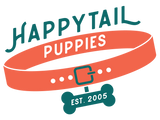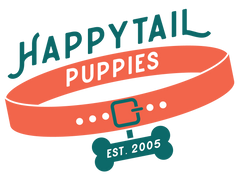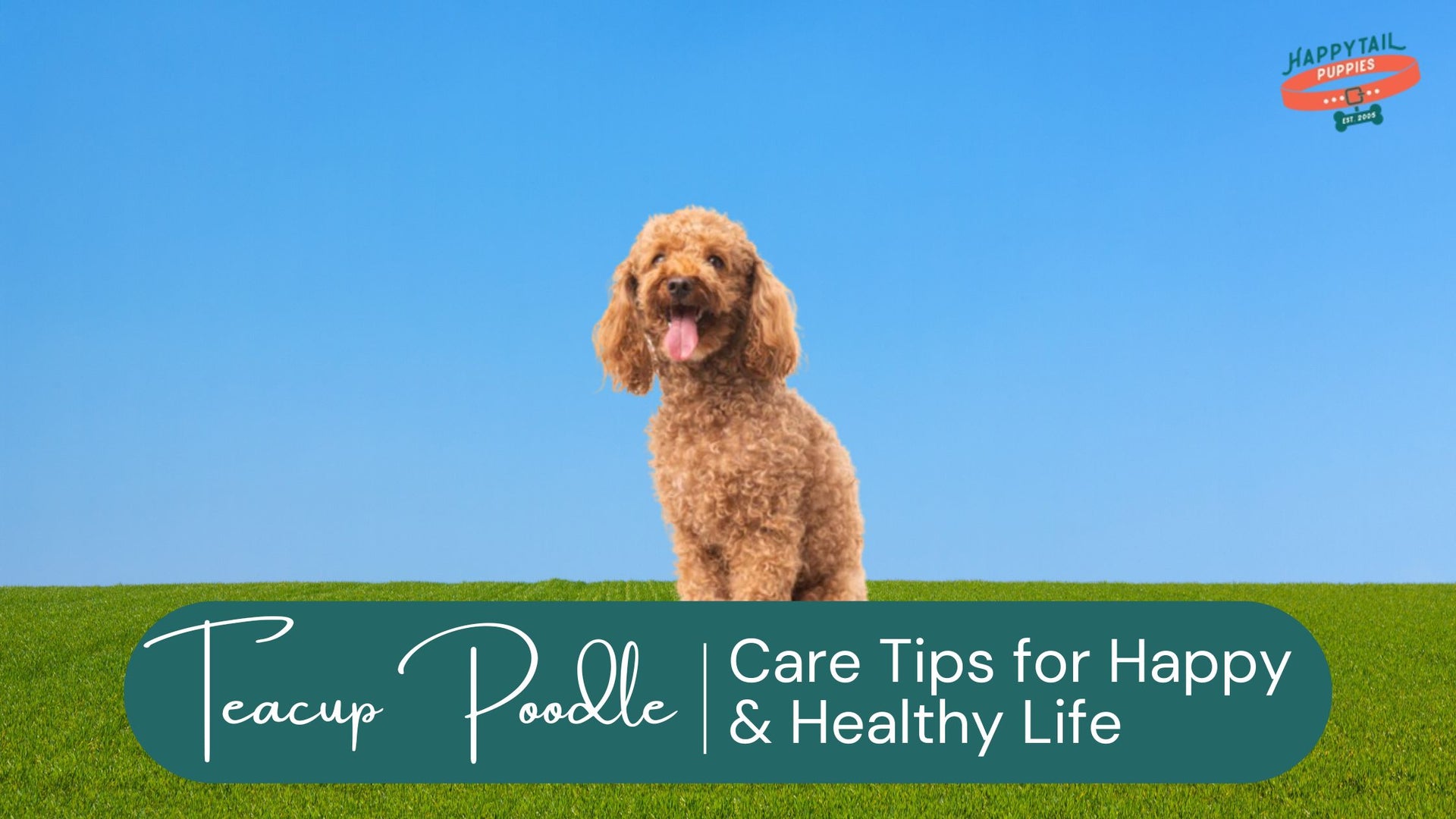Teacup Poodle Care: Keeping Your Pooch Happy & Healthy
Specifically, the poodles, which are intelligent, elegant, and charming dogs, are truly great and suitable pets. As mentioned earlier, the Standard, Miniature, and Toy Poodles must be well taken care of as they are special breeds. This guide will introduce you to the care and maintenance of your Teacup Poodle, including fur, diet, activity, and more.
Teacup Poodle Care Tips : Things You Need to Know
Poodles have high intelligence and activity levels, and they can be obedient and friendly. They need a lot of attention from people and a lot of exercise since they can only be left alone for a short time before becoming destructive. Therefore, identifying their personality and requirements is the initial stage in giving your dog excellent Poodle care tips.
Regular Brushing and Bathing
Teacup Poodles are hypoallergenic dogs because they have a curly coat that does not shed; however, they need frequent grooming in order to avoid tangling. Bathe your Poodle on a weekly basis using a gentle dog shampoo and brush his / her coat daily using a slicker brush and comb, or at least every other day. Bathe them on a regular basis, 3-6 weekly, to ensure that their coat is clean and their skin is healthy. Bath them with the right dog shampoo and conditioner to add to the sheen of your dog’s fur.
Professional Grooming
Because of this Poodle’s fur, he needs professional grooming every 4 to 6 weeks by a professional groomer. A groomer will wash, bath, cut, and style your Poodle as well as cut their nails, clean their ears, and make sure they are presentable. Consult with your groomer about the ideal clonal and type of haircut depending on the lifestyle of your Poodle and your choice.
Feeding Your Poodle Right
Diet is one of the most important factors to consider if you want your pet to lead an active as well as a healthy life.
Balanced Diet
The health care of your Poodle is greatly dependent on taking proper, balanced meals. Commercial best diet for Toy Poodles should be given based on appropriate nutritional analysis and from reputable manufacturers who abide by AAFCO norms. Make sure that the food you feed your poodle meets the size, age, and activity level of the poodle that you own. Always consult your vet regarding your pet’s diet plans since they will recommend the best diet plan you need for your pet.
Portion Control and Feeding Schedule
Poodles can easily become overweight; therefore, their portions should be measured, and they should not be fed more than necessary. Use the recommended feeding amounts that are stated on the dog food label, and then consider your Poodle’s weight and intensity level. Suggest that they spread their meals throughout the day into two or at most three meals in order to avoid overeating and also be able to have a constant source of energy all through the day.
Hydration
Always offer your Poodle clean water to drink. They need to stay hydrated to improve their health, especially when the weather is very hot, or they have exercised.

Keeping Your Poodle Fit and Active
We cannot deny the importance of exercise for pets. Your Poodle needs its daily dose of walk and playtime to stay fit and energetic.
Daily Walks
Physical activity is crucial to the health and welfare of your Poodle; hence, it is recommended on a regular basis. Ideally try and do one or two walks per day for about 30-60 minutes. Daily walking benefits your Poodle in many ways; your Poodle gets to exercise, familiarize with the environment or new sceneries and interact with both other dogs and people.
Playtime and Interactive Toys
Ensure that you include playtime as one of the activities to carry out with your Poodle during the day. Some of the best exercises for your Poodle are fetch, tug-of-war, and hide-and-seek exercises, and swimming which help to use the entire body and the brain. Some of the common toys include puzzle feeders and treat dispensing toys, which enhance mental rotation and help to eliminate cases of boredom.
Training and Agility
Due to their intelligence and desire to work, the breed of poodle is obedience and agility trained. You can take your Poodle to training classes or teach it these commands and tricks within the comfort of your home. Agility courses, whether at a professional facility or at a homemade facility in your backyard, are a wonderful physical and mental workout.
Regular Check-ups and Preventative Measures
Keeping a regular check on your furry friend’s health vis check ups and visit to the vet cannot be ignored.
Veterinary Visits
Ensure your Poodle gets a proper check-up by the vet once every six months. Check-ups are important in identifying possible ways of getting ill and thus preventing it. Common health concerns in Teacup Poodles include hypoglycemia, parasites, and dental care. Make sure your Poodle has all its vaccinations, parasite prevention, and regular dental checkups.
Dental Health
It is also important to note that some crosses, like the Poodle, are predisposed to dental diseases, hence the need to brush their teeth. Feed your Poodle a balanced diet and ensure brushing a Poodle at least once a day using a toothbrush and toothpaste for dogs. Dental chews and toys should also be supplied to minimize the formation of plaque and tartar. Cleaning by the dental professional may also be required by the patient often.
Monitoring Weight and Health
Pay attention and monitor the Poodle’s weight and health condition. Any shift in weight, eating habits, or activity level may be a sign of a health problem. It is best to consult your animal’s doctor if you observe some signs to worry about.
Bonding with Your Poodle
Dogs are as emotional as human beings. Bonding with your Pooch will not only help your Pooch to stay happy, it will also have a positive impact on the owner's mood as well.Quality Time Together
Taking time with your Poodle improves your friendship and boosts the development of your pet. Exercise in a way that you both find fun; this can be walking, playing, or even just catching a nap. Your poodle will be happy to receive your attention, and this will allow you to bond with it.
Positive Reinforcement
Reward the good behaviors and avoid punishing when attempting to penetrate a child’s life with positive outcomes. Use positive reinforcement by giving your Poodle a treat, telling him or her ‘good boy/girl,’ or even petting him or her when they follow commands or exhibits the appropriate behaviors. Regular and constant training helps achieve the target; therefore, training should not be a one-time event but frequent.
Understanding Body Language
Communicating with your Poodle and identifying their needs is possible only if you know the signals they give. Therefore, body language in poodles includes posture, tail, ears, and faces. Understanding them enables you to act properly, which will deepen the bond in your relationship.
Conclusion
Although Poodle care is quite demanding, the benefits are enormous. You and your Poodle may have a happy and rewarding relationship if you are aware of their special requirements and work to strengthen your bond with them via quality time and positive reinforcement.
Frequently Asked Questions
Here are a couple of questions we have answered for you.
How to Keep Poodles Happy?
A Poodle's pleasure greatly depends on mental stimulation. Because they are a very intellectual breed, it is important to keep both their bodies and minds busy to prevent any behavioral issues that may arise from boredom.
What Do Poodles Love Most?
Poodles enjoy the water, so swimming is a great activity for them. Getting them near or in the water can provide them great joy.
What Is a Poodle's Favorite Thing to Do?
They love running, long walks, and a nice game of fetch. They make outstanding retrievers. Swimming is an excellent alternative as well since they make excellent water dogs.
What Are the Behavior Problems with Poodles?
If they are separated from their owners for an extended period, they may also experience separation anxiety. Poodles' propensity to establish dominance over people and other canines presents another possible behavioral problem.
- Teacup Poodle


